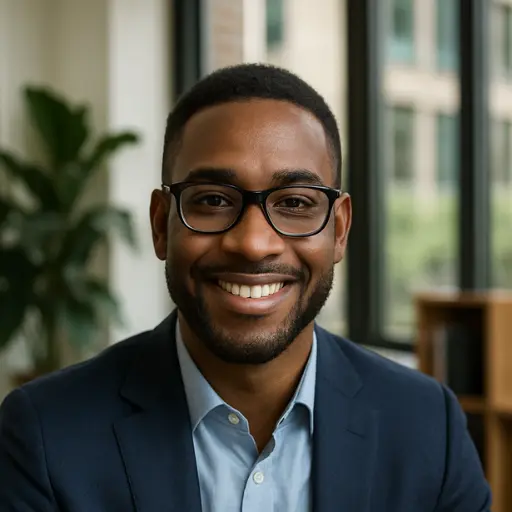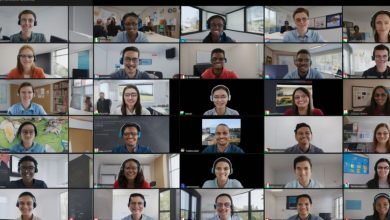Youth Exchange Programs That Build Leadership Skills
Experiencing a new culture, collaborating with peers from around the world, and leading community initiatives all before you turn twenty may sound ambitious. Yet, youth exchange programs designed to build leadership skills make this possible. By immersing young participants in unfamiliar environments, these programs foster personal growth, cross-cultural empathy, and decisive action. In this article, you will learn what youth exchange programs are, discover how they develop leadership qualities, explore top program options, understand selection criteria, follow a step-by-step application guide, and see real success stories that illustrate transformative outcomes. By the end, you’ll know how to choose and prepare for a leadership-focused exchange that shapes your future.
What Are Youth Exchange Programs?
Definition and Purpose
Youth exchange programs connect young people—typically aged 14 to 19—with host communities or institutions in another country. Participants engage in structured activities that range from academic coursework and cultural immersion to volunteer service and leadership workshops. These exchanges aim to broaden horizons, enhance language skills, and cultivate global networks. By living and learning alongside international peers, participants gain firsthand experience in navigating diverse perspectives, laying the foundation for effective leadership.
Types of Youth Exchange Programs
-
Academic and Cultural Exchanges
These programs, lasting anywhere from a few weeks to a full academic year, pair students with host families or boarding schools. Participants attend local classes, participate in cultural events, and live daily life immersed in a foreign environment. -
Service-Oriented and Volunteer Exchanges
Short-term programs focus on community projects such as building schools, environmental conservation, or mentoring local youth. Participants learn leadership through hands-on collaboration and decision-making in real-world contexts. -
Leadership-Specific Exchanges
Often structured as camps or workshops, these programs center on leadership training. Through facilitation by experienced mentors, participants engage in team-building exercises, public speaking sessions, and strategic problem-solving tasks designed to hone leadership abilities. -
Hybrid Programs
Combining academic, service, and leadership components, hybrid exchanges offer a blend of classroom learning, community service, and leadership workshops. Participants benefit from multiple pathways to develop leadership competencies while immersed in another culture.
Importance of Leadership Development in Youth Exchanges
Why Leadership Skills Matter in a Global Context
-
Builds Adaptability and Resilience
Encountering unfamiliar customs and languages pushes participants to adapt quickly. This resilience translates to future challenges, whether in academic settings or professional environments. -
Enhances Cross-Cultural Communication
Leading a diverse team requires clarity and empathy. Youth exchange participants learn to listen actively, navigate nonverbal cues, and mediate misunderstandings—crucial skills for any global leader. -
Fosters Problem-Solving in Diverse Teams
Working alongside peers with different backgrounds encourages creative solutions. Collaborative brainstorming and shared responsibility teach young leaders to synthesize multiple viewpoints into effective strategies. -
Prepares Young People for Global Citizenship
By understanding local issues and contributing to community projects, participants develop a sense of responsibility to address social challenges—an essential trait for future global leaders.
How Exchanges Foster Leadership Skills
-
Exposure to Unfamiliar Environments
Stepping outside one’s comfort zone builds confidence. Making decisions about daily routines—language classes, navigation, or social interactions—teaches participants to trust their judgment. -
Collaborative Group Projects
Team-based tasks such as organizing a community event or designing a service initiative require delegation, conflict resolution, and motivation—all critical leadership skills. -
Mentorship from Staff and Local Leaders
Guidance from experienced counselors or community elders models effective leadership behavior. Mentors provide feedback, share best practices, and help participants reflect on their leadership style. -
Structured Reflection Sessions
Regular check-ins encourage participants to analyze successes, learn from mistakes, and set goals. This cycle of reflection reinforces self-awareness and continuous improvement.
Top Youth Exchange Programs Focused on Leadership Development
AFS Intercultural Programs
AFS offers a range of year-long and short-term exchanges in over 50 countries. Before departure, participants attend pre-departure training that emphasizes cultural sensitivity and leadership basics. Once abroad, AFS students engage in community service projects—such as tutoring or environmental initiatives—under the supervision of local mentors. Peer-led workshops, often facilitated by returnees, enable participants to hone presentation skills and coordinate group activities, fostering leadership through real-world practice.
Rotary Youth Exchange
Rotary’s youth exchange programs include both academic-year placements and short-term summer exchanges. Central to Rotary’s mission is “Service Above Self,” which translates into structured involvement in local Rotary club projects. Participants learn public speaking through Rotary-sponsored youth leadership summits and gain fundraising experience by organizing community events. Ongoing mentorship from Rotary club members provides consistent guidance, helping participants translate leadership lessons into actionable community impact.
Youth for Understanding (YFU)
YFU’s semester and year-long exchanges in over 50 countries combine cultural immersion with service learning. In addition to attending local schools, YFU participants organize cultural seminars—sharing their home country’s traditions—and lead peer discussion groups to tackle topics such as environmental stewardship or social justice. Local coordinators challenge students to design and execute service projects, from assisting in refugee centers to coordinating neighborhood cleanups, reinforcing leadership through initiative and collaboration.
CISV (International People-to-People Programs)
CISV focuses on peace education and leadership training through both long-term exchanges and one-month summer villages. Youth meeting programs bring together participants aged 11 to 17, encouraging them to plan and lead peace-building workshops. Junior Branch leadership committees—comprised of alumni—mentor younger participants and help design global partnership projects. By engaging in conflict-resolution simulations and cultural dialogues, participants develop empathy, negotiation skills, and project management abilities, all core to effective leadership.
Experiment in International Living
Experiment programs range from three to eight weeks, emphasizing immersive homestays and experiential learning. Facilitators lead structured community projects that address local needs, such as water sanitation or arts education. Leadership workshops cover topics such as cross-cultural dialogue, creative problem-solving, and ethical decision-making. Participants rotate roles—project planner, communications lead, or logistics coordinator—ensuring each young person practices different facets of leadership in a supportive environment.
Features of Effective Leadership-Building Exchanges
Pre-Departure Training and Goal Setting
Tutorial: “How to Set SMART Leadership Goals Before Departure”
-
Specific: Define Which Leadership Skills to Develop
Decide whether you want to improve public speaking, enhance team coordination, or strengthen cultural diplomacy. For example, “I will lead a cultural awareness presentation in front of at least 20 peers within three weeks.” -
Measurable: Establish Clear Metrics
Quantify success. Rather than saying “improve teamwork,” specify “organize and facilitate three group activities with at least five participants each.” -
Achievable: Align Goals with Program Duration and Resources
If you will be abroad for six weeks, planning a month-long leadership project may be unrealistic. Instead, aim to co-lead one community event and gather participant feedback. -
Relevant: Tie Goals to Personal Growth and Long-Term Plans
If you aspire to study international relations, focus on leadership tasks that involve cross-cultural negotiation or public speaking in your host community. -
Time-Bound: Set Checkpoints
Schedule mid-exchange and end-of-exchange reviews. For example, “By the program’s midpoint, I will have led one peer discussion; by the end, I will present a reflection to my host family and exchange cohort.”
On-Site Mentorship and Community Service
Local coordinators and host families act as mentors, guiding participants through cultural nuances and leadership challenges. Community service initiatives might include teaching English to younger children, organizing neighborhood cleanups, or collaborating with local nonprofits. By taking responsibility for real-world tasks—such as recruiting volunteers or managing logistics—participants practice leadership under the supervision of experienced adults who provide feedback and model effective decision-making.
Group Projects and Collaborative Challenges
-
Cross-Cultural Team-Building Exercises
Icebreakers that mix participants from different countries—such as “cultural scavenger hunts”—encourage quick rapport-building and trust. These exercises lay the groundwork for effective team collaboration. -
Problem-Solving Simulations
Mock United Nations debates or community need assessments teach participants to gather diverse viewpoints, negotiate, and reach consensus. Roles rotate to ensure each young person experiences facets of leadership, negotiation, and public speaking. -
Planning and Executing Local Outreach Events
From fundraisers to cultural festivals, participants take charge of budget planning, volunteer coordination, marketing, and execution. This end-to-end project management develops strategic thinking and accountability.
Reflection and Feedback Sessions
“How do youth exchange programs develop leadership skills?”
-
Immersion in New Cultures Requires Quick Decision-Making and Adaptability
Navigating unfamiliar public transportation, resolving language barriers, and adjusting to new customs push participants to trust their instincts and problem-solve swiftly. -
Group Projects Teach Delegation, Communication, and Conflict Resolution
Leading a team demands clarifying roles, motivating peers, and managing disagreements constructively—core aspects of leadership in any context. -
Mentors Guide Participants in Setting Goals, Receiving Feedback, and Leading Peers
One-on-one check-ins with program staff or local coordinators help participants refine their leadership approach, celebrating successes and learning from setbacks. -
Structured Reflections Help Participants Identify Strengths and Areas for Growth
Writing reflective journals, participating in facilitated debrief sessions, and conducting peer evaluations encourage self-awareness and continuous improvement.
How to Choose the Right Program for Leadership Growth
Criteria Comparison Table
| Program | Duration | Leadership Focus | Cost Range | Age Range | Unique Leadership Elements |
|---|---|---|---|---|---|
| AFS Intercultural Programs | 3 weeks–1 year | High (workshops + community) | $2,000–$10,000 | 15–18 | Peer-led seminars, local project coordination |
| Rotary Youth Exchange | 6 weeks–1 year | Very high (Rotary service ethos) | $3,500–$8,500 | 15–19 | Rotary club mentorship, leadership summits |
| Youth for Understanding | 3 months–1 year | High (cultural & service blend) | $3,000–$12,000 | 15–18 | Cultural seminars, service project leadership |
| CISV | 1 month–1 year | High (peace & leadership) | $2,000–$6,000 | 11–17 | Youth committees, peace-building workshops |
| Experiment in International Living | 3–8 weeks | Medium (immersion + service) | $3,500–$7,500 | 14–19 | Facilitator-led leadership labs, homestay tasks |
Questions to Ask Before Applying
-
Matching Personal Goals to Program Features
-
Do you prefer a longer immersion (semester or year) to deeply integrate into a community, or a short-term leadership sprint (summer camp) for an intensive experience?
-
Is language immersion and academic credit a priority, or is dedicated service leadership your main objective?
-
What level of independence in decision-making do you seek—self-led projects or structured mentorship?
-
Assessing Program Accreditation and Support
Accreditation by reputable educational bodies or youth organizations ensures program quality and safety standards. Confirm that staff hold relevant qualifications in youth leadership development, that emergency protocols are clearly defined, and that mental health resources are accessible. Programs with strong alumni networks and measurable impact reports typically maintain higher standards of participant support.
Step-by-Step Guide to Applying for a Youth Exchange Leadership Program
Tutorial: “Five Steps to Secure Your Exchange Spot”
-
Research Programs Thoroughly
Gather brochures, attend virtual info sessions, and compare leadership components across different organizations. Note application deadlines, program costs, and scholarship availability. -
Prepare Required Documentation
-
Transcripts: Provide official academic records showing grades and extracurricular involvement.
-
Recommendation Letters: Request endorsements from teachers or community leaders who can attest to your leadership potential and community engagement.
-
Personal Essays: Write essays that highlight past leadership experiences—such as roles in student council, clubs, or volunteer organizations—and outline how the exchange aligns with your goals.
-
Language Proficiency Certificates: If required, submit standardized test scores (e.g., IELTS, DELF).
-
-
Craft a Compelling Personal Statement
Showcase specific leadership achievements, whether organizing fundraising events, leading a volunteer team, or mentoring younger students. Explain why you want to develop leadership skills through cultural exchange and what you plan to contribute to your host community. -
Interview Practice
Conduct mock interviews focusing on questions like “Describe a time you led a team through a challenge” and “How will you leverage your leadership skills to contribute to your host community?” Emphasize adaptability, empathy, and initiative. -
Finalize Application and Confirm Logistics
Double-check all forms, ensure supporting documents meet formatting guidelines, and pay attention to application fees. Verify passport validity (ideally at least six months beyond return date), schedule language tests if needed, and confirm attendance at mandatory pre-departure orientations.
“What documents are needed to apply for youth exchange leadership programs?”
-
Curriculum Vitae highlighting extracurricular and leadership experiences
-
Letters of Recommendation focusing on leadership potential and teamwork skills
-
Personal Essay detailing past initiatives, leadership philosophy, and program objectives
-
Official Academic Transcripts demonstrating academic performance and commitment
-
Language Proficiency Certificates (if required by the host program)
-
Medical Clearance or Health Insurance Proof as dictated by host country regulations
-
Parental Consent Form if under the minimum age requirement (varies by program)
Measuring Leadership Outcomes from Exchange Experiences
Setting and Tracking SMART Goals
-
Example 1: Lead a Cross-Cultural Team to Plan a Community Service Event Within Two Months
Specific: Organize a fundraising campaign for a local children’s library.
Measurable: Recruit at least five volunteers and raise $500 in donations.
Achievable: Leverage program orientation to network with peers and local nonprofits.
Relevant: Aligns with passion for literacy and leadership development.
Time-Bound: Launch the campaign by Week 2, host the event by Week 8. -
Example 2: Facilitate a Weekly Peer Discussion on Local Social Issues, Achieving 80% Participant Engagement
Specific: Host one-hour forums discussing topics like environmental sustainability or youth unemployment.
Measurable: Track attendance and gather feedback through post-session surveys.
Achievable: Use community service hours allotted by the program to coordinate with local youth centers.
Relevant: Builds public speaking, organizational, and cultural analysis skills.
Time-Bound: Conduct the first session within three weeks and complete four total sessions by program end.
Self-Assessment and Mentor Feedback
Participants complete periodic self-evaluation surveys to reflect on communication effectiveness, initiative, and empathy in team settings. One-on-one check-ins with mentors provide qualitative feedback on strengths—such as conflict resolution—and areas for improvement—such as active listening. Peer feedback circles, where participants share observations on each other’s leadership style, reinforce accountability and collective growth.
Comparative: Virtual vs. In-Person Leadership Exchanges
| Feature | In-Person Exchange | Virtual Exchange |
|---|---|---|
| Immersion Level | High (24/7 interaction, cultural immersion) | Moderate (scheduled sessions, limited real-world context) |
| Cost Considerations | Higher (travel, lodging, visas) | Lower (no airfare, minimal visa costs) |
| Access to Local Community | Direct (volunteering, local events, homestays) | Indirect (virtual collaborations, online projects) |
| Real-Time Leadership Practice | Immediate feedback in dynamic settings | Simulated leadership tasks through virtual tools |
| Technical Requirements | Basic (in-country logistics) | Robust internet connection, virtual collaboration platforms |
| Scheduling Flexibility | Less flexible (fixed program dates, full-time immersion) | More flexible (modular sessions, can often balance studies) |
In-person exchanges foster deeper cultural immersion and spontaneous leadership opportunities—such as rallying local volunteers for a community event—while virtual exchanges offer cost savings and schedule flexibility. Both platforms can effectively build leadership skills through well-designed activities, mentorship, and reflection.
Success Stories and Case Studies
Case Study: High School Student Leading a Community Project in Spain
A digital-native teen from the United States joined an AFS summer exchange in Seville, Spain. Tasked with organizing a bilingual cultural festival, she coordinated a team of 10 local and international peers. Through effective delegation, she arranged fundraising, secured venue permissions, and marketed the event via social media. With a 40% increase in attendance compared to the previous year, her festival brought together Spanish neighbors and exchange students in a shared celebration of art and music. Upon returning home, she presented her leadership journey at her high school assembly, inspiring peers to pursue their own exchange experiences.
Case Study: Rotary Youth Exchange Member in Brazil
A 17-year-old from Canada spent a year on a Rotary Youth Exchange in São Paulo, Brazil. She identified a need for improved literacy resources in underfunded neighborhoods and organized a literacy campaign in partnership with local Rotary clubs. Leading weekly reading workshops for over 50 children, she trained volunteers, managed logistics, and secured book donations from local businesses. Her dedication earned her recognition from São Paulo’s municipal education board, which awarded her a youth leadership accolade. Returning to Canada, she launched a similar program in her hometown, demonstrating how exchange experiences can seed sustainable leadership initiatives.
Case Study: CISV Participant Facilitating Peace Workshops in South Africa
A 16-year-old from Sweden attended a CISV village program in Cape Town, South Africa. Collaborating with peers of 10 nationalities, she co-facilitated conflict-resolution workshops for a refugee youth center. Through role-playing exercises and guided discussions, participants from diverse backgrounds learned peaceful communication techniques. She then led a digital toolkit project, creating resources shared with 10 CISV chapters globally to replicate the workshops. This experience significantly enhanced her empathy, project management, and cross-cultural leadership skills, culminating in her founding a youth-led peace club upon her return.
Frequently Asked Questions
What age range is eligible for youth exchange leadership programs?
Most programs accept participants between 14 and 19 years old, though some extend eligibility to 21. Always check specific program guidelines, as age requirements may vary by organization and country.
How long do leadership-focused youth exchanges typically last?
Program durations range from short-term leadership workshops (1–4 weeks) to summer camps (2–8 weeks) and full-term exchanges (3–12 months). Choose a timeframe that aligns with your academic calendar and personal goals.
What are common costs and scholarship options?
Costs vary widely: short-term camps may start around $1,500, while year-long exchanges can exceed $10,000. Many organizations offer partial or full scholarships based on merit, financial need, or community service background. Early research and scholarship applications increase the likelihood of financial support.
Can virtual youth exchanges effectively build leadership skills?
Yes. Virtual exchanges replicate leadership challenges through online simulations, collaborative digital projects, and mentorship sessions. While immersion is limited compared to in-person programs, participants still gain valuable communication, project management, and cross-cultural teamwork experience at a lower cost.
How can parents support their teens through the application process?
Parents can help research reputable programs, assist in gathering documentation, review personal statements, and facilitate mock interviews. Their support in confirming deadlines, understanding scholarship opportunities, and ensuring safety measures builds confidence and smooths preparations.
What safety measures do reputable programs implement?
Trusted organizations conduct background checks on host families or local partners, provide 24/7 emergency support, require comprehensive health insurance, and enforce strict codes of conduct. Clear communication channels and on-site staff ensure participant well-being throughout the exchange.
Conclusion
Youth exchange programs designed to build leadership skills offer transformative experiences that blend cultural immersion, service, and personal growth. By selecting a program that aligns with your aspirations—whether a short-term leadership workshop or a full-year academic exchange—you can develop adaptability, cross-cultural communication, and strategic problem-solving abilities. Use the provided criteria comparison table to evaluate program options, follow the step-by-step application guide to craft a standout submission, and set SMART goals to measure your progress. Real-world case studies demonstrate that effective leadership emerges when theory meets practice: organizing community initiatives, mediating cultural dialogues, and collaborating across borders. Embrace these opportunities to forge meaningful connections, sharpen leadership acumen, and shape your path as a global citizen and emerging leader.
Published on: 4 de June de 2025








